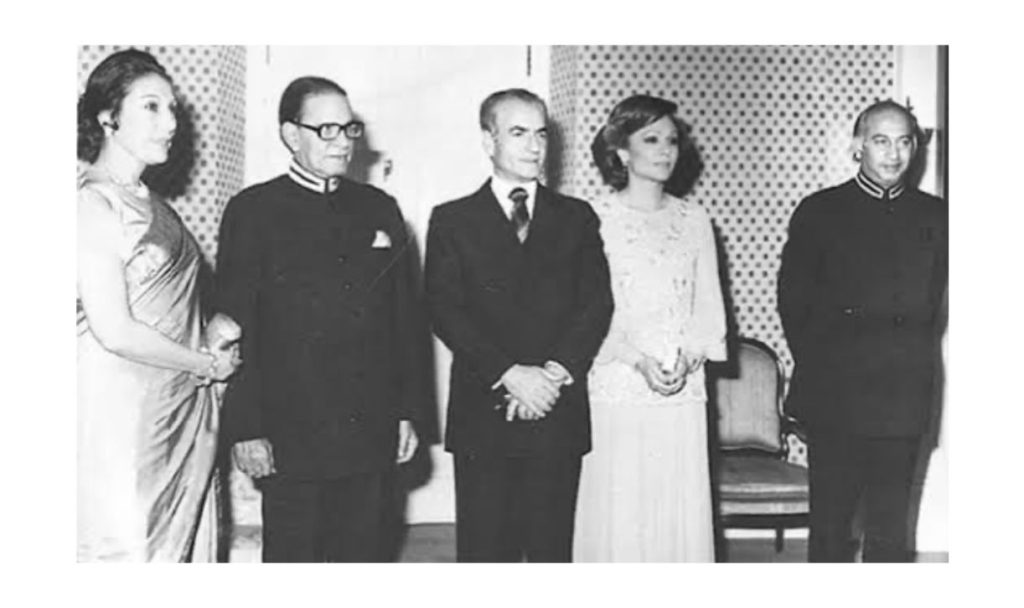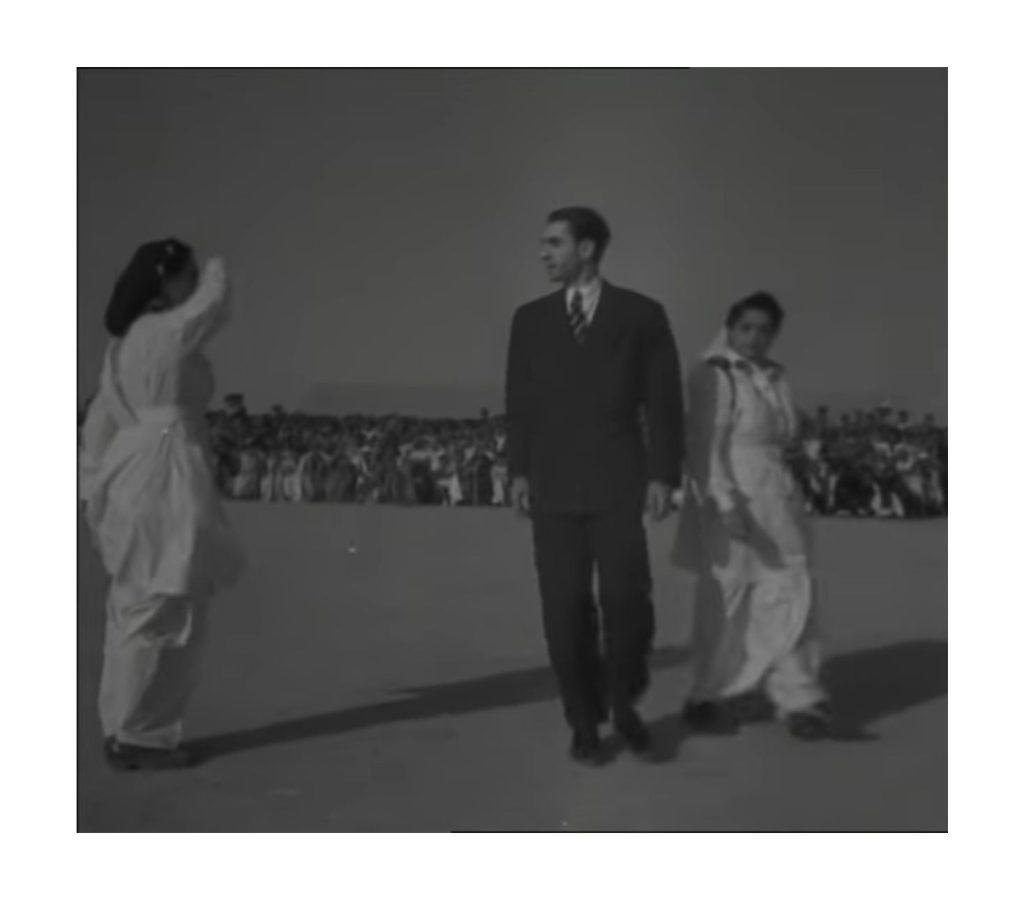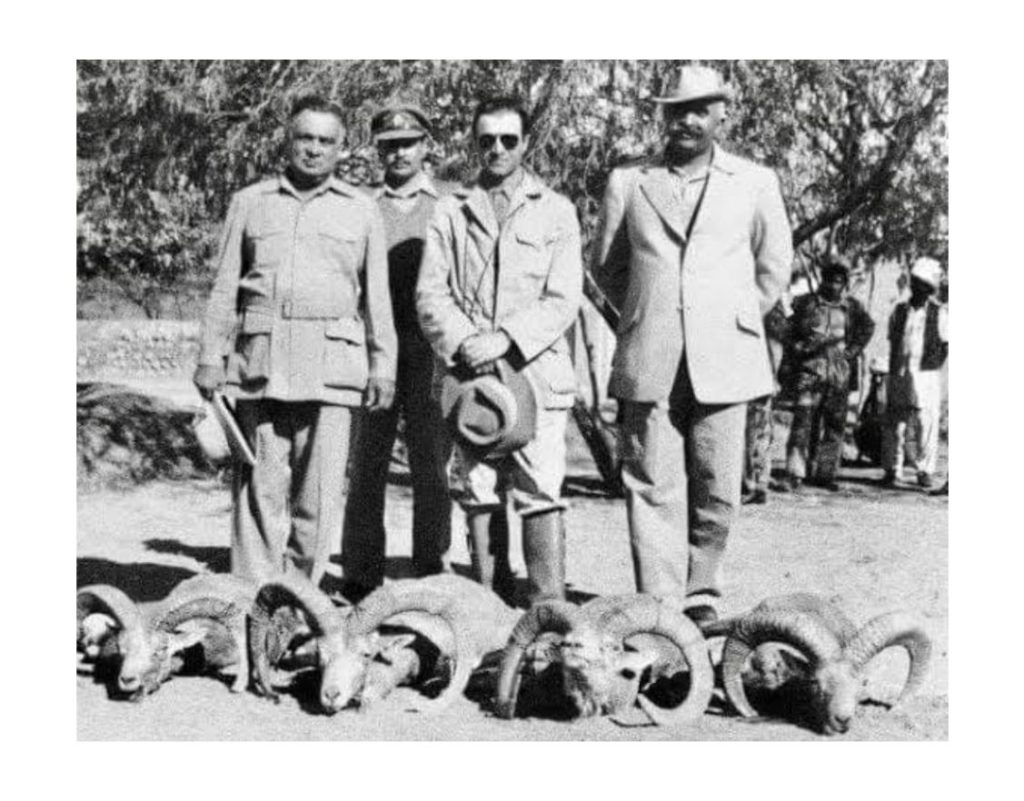Introduction
The relationship between Iran and Pakistan during the reign of Shah Reza Pahlavi, the last Shah of Iran, was marked by mutual interests, regional dynamics, and geopolitical strategies. This article delves into the multifaceted interactions between the two countries, exploring the diplomatic, economic, and cultural dimensions that defined their ties during this critical period.

Diplomatic Relations
Iran’s Early Recognition of Pakistan
When Pakistan emerged as an independent state in 1947, following the partition of British India, it faced numerous challenges, including securing international recognition and establishing itself as a sovereign nation. Iran, under Shah Reza Pahlavi, was one of the first countries to recognize Pakistan, signaling a strong foundation for future diplomatic relations. This early recognition was not merely symbolic; it demonstrated Iran’s support for Pakistan’s sovereignty and its commitment to fostering a friendly relationship.
Early Diplomatic Engagement
Shah Reza Pahlavi ascended to the throne in 1941, and during his reign, Iran’s foreign policy was heavily influenced by Cold War dynamics. Pakistan, which gained independence in 1947, quickly became a key ally for Iran in the region. The two countries established formal diplomatic relations soon after Pakistan’s independence. This was a strategic move for both nations, as they sought to bolster their positions against regional adversaries and the growing influence of the Soviet Union.
CENTO and Regional Cooperation
One of the significant milestones in Iran-Pakistan relations was their participation in the Central Treaty Organization (CENTO), formed in 1955. CENTO, also known as the Baghdad Pact, was a military alliance aimed at countering Soviet influence in the Middle East. Alongside Turkey and the United Kingdom, Iran and Pakistan worked closely within this framework, which strengthened their military and political collaboration. The alliance underscored their mutual commitment to regional security and anti-communist sentiments.
Iran’s Support in Pakistan’s Conflicts
Support During the Indo-Pakistani Wars
Iran played a crucial role in supporting Pakistan during its conflicts with India. During the Indo-Pakistani War of 1965, Iran provided significant diplomatic and logistical support to Pakistan. The Shah viewed a stable and friendly Pakistan as vital for regional stability and countering Indian influence. Iran supplied Pakistan with military equipment and critical supplies, helping to bolster Pakistan’s defense capabilities during the conflict.
In the 1971 Indo-Pakistani War, which led to the creation of Bangladesh, Iran again offered support to Pakistan. Although the outcome was a significant geopolitical shift in South Asia, Iran’s support during the conflict was indicative of the strong bilateral ties and the Shah’s commitment to assisting Pakistan in times of need.

The Pashtunistan Issue
The Pashtunistan issue, concerning the ethnic Pashtuns living on both sides of the Pakistan-Afghanistan border, was another significant area where Shah Reza Pahlavi played a supportive role for Pakistan. Afghanistan’s claims over Pashtun territories in Pakistan posed a threat to Pakistan’s territorial integrity. The Shah of Iran, recognizing the potential for regional destabilization, supported Pakistan’s stance and advocated for the resolution of the issue through diplomatic means.
Iran’s diplomatic backing helped Pakistan manage the Pashtunistan issue more effectively, preventing it from escalating into a larger conflict. The Shah’s influence in the region and his support for Pakistan’s territorial claims were crucial in maintaining regional stability and ensuring that Afghanistan’s claims did not gain international traction.
Economic Collaboration
Trade and Commerce
Economic cooperation between Iran and Pakistan flourished under Shah Reza Pahlavi’s rule. Both countries recognized the importance of trade in fostering strong bilateral relations. Pakistan, being an agricultural economy, benefited from Iran’s industrial goods, while Iran imported textiles, rice, and other agricultural products from Pakistan. The two countries also explored joint ventures in various sectors, including energy and infrastructure development.
Energy Partnerships
One of the most notable areas of economic cooperation was in the energy sector. Iran, rich in oil and natural gas, was a crucial supplier of energy to Pakistan. The bilateral agreements on oil exports from Iran to Pakistan were pivotal in meeting Pakistan’s energy needs. This partnership not only facilitated economic growth in Pakistan but also created a sense of interdependence between the two nations.
In the 1960s and 1970s, Iran and Pakistan initiated several energy projects, including discussions about building pipelines to transport Iranian oil to Pakistan. Although some of these projects did not come to full fruition, the intent and cooperation laid the groundwork for future energy collaborations. The energy partnership was instrumental in ensuring that Pakistan had a steady supply of oil, which was vital for its
developing economy.
Cultural and Educational Exchanges
Cultural Diplomacy
The cultural ties between Iran and Pakistan were strengthened through various initiatives aimed at fostering mutual understanding and goodwill. Cultural diplomacy played a significant role, with both countries organizing art exhibitions, cultural festivals, and exchange programs. Persian literature and poetry found a receptive audience in Pakistan, while Iranian scholars and students often engaged with their Pakistani counterparts. This cultural exchange helped bridge the gap between the two nations, promoting a deeper appreciation of each other’s heritage.
Educational Initiatives
Educational exchanges were another crucial aspect of the bilateral relationship. Numerous Pakistani students pursued higher education in Iran, especially in fields like engineering and medicine. Similarly, Iranian students attended Pakistani universities, fostering a cross-pollination of ideas and knowledge. These educational initiatives helped build a foundation of goodwill and mutual respect between the two nations. Joint academic programs and research projects further solidified the educational ties, contributing to the intellectual and professional development of both societies.
Geopolitical Dynamics
Regional Security Concerns
The geopolitical landscape of South Asia and the Middle East during Shah Reza Pahlavi’s reign was complex and often volatile. Both Iran and Pakistan faced security challenges from neighboring countries and sought to enhance their strategic cooperation to address these threats. The alignment of their foreign policies, particularly concerning Afghanistan and India, was indicative of their shared security concerns and the desire to maintain regional stability.
Influence of Superpowers
The Cold War era significantly influenced Iran-Pakistan relations, as both countries navigated their alliances with global superpowers. While Iran maintained a pro-Western stance under Shah Reza Pahlavi, Pakistan balanced its relations with the United States and China. The support from these superpowers provided both nations with military and economic aid, which further solidified their bilateral ties.
Iran and Pakistan’s strategic alignment was often coordinated to counter Soviet influence in the region. Both countries were keen on preventing the spread of communism, which aligned with their participation in CENTO. The superpower dynamics also influenced their internal policies and regional interactions, making their bilateral relationship a crucial component of their foreign policies.
Military Cooperation
Joint Military Exercises
The military cooperation between Iran and Pakistan was a testament to their strong bilateral relations. The two countries conducted joint military exercises, which helped in enhancing their defence capabilities and understanding of each other’s military strategies. These exercises were crucial for maintaining a robust defense posture against common threats and for ensuring regional security.
Arms Trade and Military Assistance
Iran provided Pakistan with essential military assistance, including arms and ammunition, during times of conflict. The Shah’s regime facilitated the transfer of military technology and equipment to Pakistan, which was vital for strengthening Pakistan’s defense forces. This military cooperation was not only strategic but also underscored the deep trust and reliance the two nations had on each other.

Conclusion
The era of Shah Reza Pahlavi marked a significant chapter in the history of Iran-Pakistan relations. The diplomatic, economic, military, and cultural engagements during his reign laid the groundwork for a multifaceted partnership that sought to address mutual interests and regional challenges. Iran’s early recognition of Pakistan, support during its conflicts, and collaboration in addressing regional issues like the Pashtunistan conflict highlighted the depth of their alliance.
Although the political landscape has evolved since the Shah’s era, the legacy of cooperation and collaboration between Iran and Pakistan continues to influence their relations in contemporary times. The foundations laid during Shah Reza Pahlavi’s reign have endured, shaping the bilateral dynamics between these two important regional players.
By: Qasim Akram
